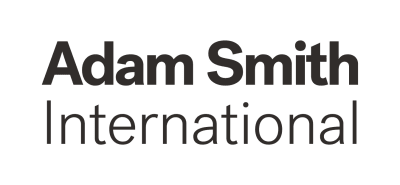
Quality and Impact Officer
- On-site
- Damascus, Dimashq, Syrian Arab Republic
- Project Positions
Job description
Position: Quality and Impact Officer – Multiple (6) positions (different geographic coverage)
Location(s): Syria – distributed in the following governorates:
2x - Aleppo and Idleb Governorates – covering these governorates, and Lattakia as requested.
1x - Deir Al Zor city as requested
Homs and Hama – covering these governorates and Tartus as requested.
1x - As-Sweida– covering Sweida and supporting Daraa, and Rural Damascus as requested.
1x - Damascus and Rural Damascus – covering these governorates, and Quneitra and Daraa as required.
Reports to: Quality and Impact Coordinator (day-to-day); Deputy Executive Director – Quality and Impact (overall)
Duration: October 2025 – September 2026
About ASI and AFS
Adam Smith International (ASI) is a global advisory company that works locally to transform lives by making economies stronger, societies more stable, and governments more effective. Our clients are governments, international organisations, companies, and foundations. They come to us to develop strategies and to design, deliver and evaluate programmes that address the big challenges facing the world. Our core team of staff and technical experts, in multiple offices around the world, ensures the quality of delivery and high ethical standards that we and our clients require.
ASI is owned and operated by its employees. We are committed to corporate integrity and a triple bottom line of social, environmental and financial performance. This commitment was formally recognised when we became a certified B Corp. The certification indicates we balance profit and purpose through the highest standards of transparency and accountability as well as social and environmental performance.
The Aid Fund for Syria (AFS), formerly the Aid Fund for Northern Syria (AFNS), is a multi-donor pooled fund established in October 2022 to meet critical needs in Syria. Initially focused on addressing acute humanitarian needs in northern Syria through the cross-border response, AFS has since evolved into a flexible funding mechanism supporting efforts towards Humanitarian-Development-Peace (HDP) Nexus. Following the fall of the Assad regime in December 2024, AFS expanded its strategic focus to areas previously not accessible to AFS partners, adapting to Syria’s evolving political, economic, and institutional landscape. The Fund continues to work with aid actors, including communities, civil society organisations, the cluster coordination mechanism, the United Nations, and donors to identify where needs and opportunities are greatest and where it can add the most value.
Objective
The Quality and Impact Officer provide field assurance, evidence and insight for AFS delivery, with primary support to MEL (overseen by the MREL unit) and shared responsibilities to other units (Partnership and Delivery, Risk and Safeguarding, Finance, etc). Outputs may be requested in Arabic and English. Work is organised through a monthly plan issued by the Quality and Impact Coordinator, who consolidates support needs submitted via an online tool and assigns tasks. The plan may be amended during the month, and additional tasks may be assigned as needed. Work is tracked against a performance indicator focused on quality and efficiency of delivery.
Location: Syria – distributed in the following governorates:
X2 Aleppo and Idleb Governorates – covering these governorates, and Lattakia as requested.
X1 - Deir Al Zor city as requested
X1 Homs and Hama – covering these governorates and Tartus as requested.
X1 As-Sweida– covering Sweida and supporting Daraa, and Rural Damascus as requested.
X1 Damascus and Rural Damascus – covering these governorates, and Quneitra and Daraa as required.
Officers may be tasked to support other locations as needed, including cross-cover (e.g., an officer based in Aleppo supporting other governorates). Regular travel to Damascus, where feasible, may be required for workshops, coordination meetings and training. This distribution will be reviewed and adjusted based on demand, Allocation Strategies and project amendments. Priority will be given to applicants with demonstrable experience or knowledge of their chosen locations. Applicants may indicate more than one governorate in their application and rank their preferences based on experience.
Key Responsibilities
Monitoring, Evaluation and Learning (MEL) specific responsibilities (60%)
Conducts field monitoring checks in line with the AFS Manual and project monitoring plans, calibrated to the partner’s capacity–performance rating. Additional visits may be conducted as directed by the Quality and Impact Coordinator or the MREL Manager.
Observes delivery against the mobile data capture (MDC) based checklist, approved proposals and relevant humanitarian standards. Records observations and verifies outputs. Notes delays and risks and updates the field monitoring tracker on the same day where feasible.
Uses MDC as the main tool for collecting data during field visits. Uses AFS authorised forms and devices, keeps them updated and promptly flags issues.
Implements assessments and community engagement activities using approved tools and sampling, including household surveys, FGDs and key informant interviews. Ensures informed consent, safeguarding and secure data handling.
As requested, conducts market assessments and service availability snapshots and provides concise context notes to inform programme delivery.
When requested, accompanies Third Party Monitoring visits to facilitate access, observe methods and capture AFS observations. Does not direct TPM tasks and provides a short visit note when asked.
Supports the Data Quality Assessment process when requested by the MREL Manager and the DED – Quality and Impact.
Shared tasks (cross-units) (40%)
Supports due diligence and capacity assessment verifications using approved checklists and evidence gathered through MDC.
Supports programme office checks and financial checks at partner offices when requested, keeping these distinct from on-site programme checks.
Supports external audits when requested by facilitating access to sites, people and documents and by providing factual records.
Identifies and maps stakeholders, service providers and active projects in assigned areas of operation and supports maintenance of these maps. Approaches national or local authorities only with prior approval from the DED – Quality and Impact and in coordination with the Quality and Impact Coordinator, recording outcomes when required.
Observe partners tendering process and ensure reporting procurement gaps to partners and field coordinator.
Provides field inputs to project risk registers, escalates material risks identified during checks and supports agreed mitigation follow-up.
Supports AAPCE in line with the AFS AAPCE Strategy, working with the AAPCE Focal Point on AFS-lead initatives (e.g., pre-allocation consultation sessions); and monitor the visibility of partner information sharing and feedback channels during visits.
Supports GESI in line with the AFS GESI Strategy, working with the GESI Focal Point to help ensure inclusive participation and basic disaggregation requirements are met in field data and engagement activities.
Supports safeguarding in coordination with the Safeguarding Adviser by reporting safeguarding concerns to the Safeguarding Adviser on the same day they are observed, using approved channels. Maintains confidentiality and follows referral steps as instructed by the Safeguarding Adviser.
When requested, participates in Technical Evaluation Panels to review project proposals and, where relevant, draws on professional backgrounds such as medical or engineering, or other technical backgrounds to support technical monitoring alongside the responsible technical expert.
Reporting, Management, and Accountability
The officer will report to the Quality and Impact Coordinator for day-to-day tasks and the AFS Deputy Executive Director – Quality and Impact overall.
Availability
The officer must be available to serve on the programme between October 2025 and September 2026.
Job requirements
Personal Qualifications and Experience
At least 5 years of experience in grant management, monitoring, delivery, or a similar role, preferably with international organisations
Arabic fluency and working English sufficient to read guidance, draft reports and attend meetings where English is spoken.
Ability to provide meaningful inputs for analyses (e.g., visuals and dashboards – see examples here) when requested.
Proven humanitarian field experience or knowledge in the applied-for governorates and familiarity with Sphere and the Core Humanitarian Standard.
Proficient with MDC tools and basic data literacy, including accurate form completion. Ability to build MDC forms (e.g., Kobo, Mobenzi, Dimagi CommCare, etc.) is an additional advantage.
Skilled in interviews, household surveys, FGDs and key informant interviews, with strong safeguarding awareness.
Professional conduct with partners and communities, maintaining appropriate boundaries.
Excellent negotiation, organisational, and problem-solving skills.
Basic security awareness, including adherence to movement procedures, situational awareness and timely incident reporting, and close coordination with operations on access constraints, routes and permissions.
We warmly welcome applications from female candidates and from people of diverse backgrounds. If you meet most of the requirements and are keen to learn, please apply.
Deadline for applications is 10th September 2025.
or
All done!
Your application has been successfully submitted!
